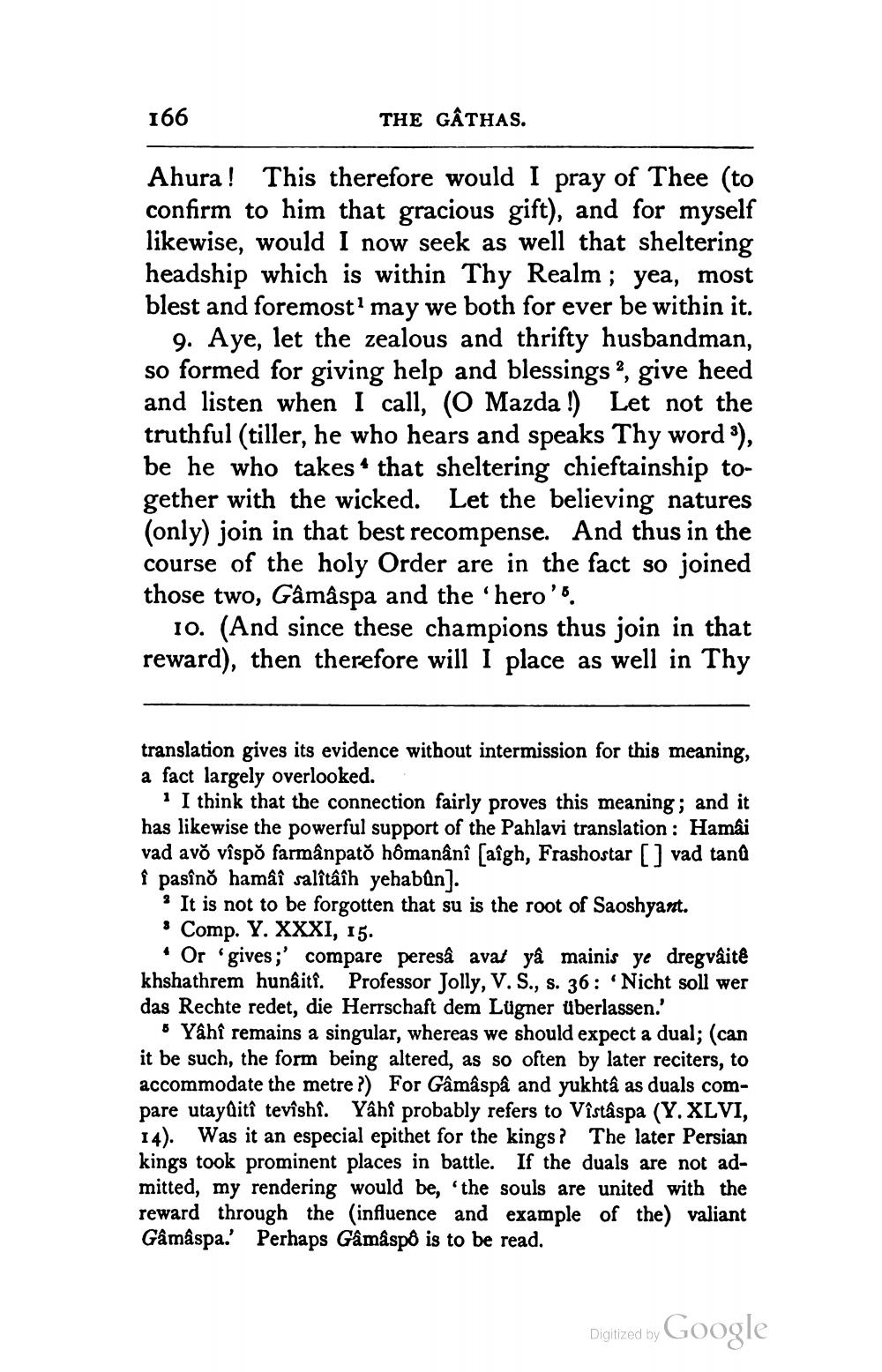________________
166
THE GÂTHAS.
Ahura! This therefore would I pray of Thee (to confirm to him that gracious gift), and for myself likewise, would I now seek as well that sheltering headship which is within Thy Realm ; yea, most blest and foremost? may we both for ever be within it.
9. Aye, let the zealous and thrifty husbandman, so formed for giving help and blessings, give heed and listen when I call, (O Mazda !) Let not the truthful (tiller, he who hears and speaks Thy word), be he who takes that sheltering chieftainship together with the wicked. Let the believing natures (only) join in that best recompense. And thus in the course of the holy Order are in the fact so joined those two, Gâmâspa and the 'hero's.
10. (And since these champions thus join in that reward), then therefore will I place as well in Thy
translation gives its evidence without intermission for this meaning, a fact largely overlooked.
I think that the connection fairly proves this meaning; and it has likewise the powerful support of the Pahlavi translation : Hamai vad avo vîspo farmânpatð hômanânî (aigh, Frashostar [] vad tang î pasînð hamâî salîtâîh yehabûn).
? It is not to be forgotten that su is the root of Saoshyant. • Comp. Y. XXXI, 15.
• Or 'gives;' compare pereså avat yâ mainis ye dregvâite khshathrem hunâiti. Professor Jolly, V.S., s. 36: Nicht soll wer das Rechte redet, die Herrschaft dem Lügner Überlassen.'
8 Yahî remains a singular, whereas we should expect a dual; (can it be such, the form being altered, as so often by later reciters, to accommodate the metre ?) For Gâmâspâ and yukhta as duals compare utayûitî tevîshf. Yâhî probably refers to Vîstâspa (Y.XLVI, 14). Was it an especial epithet for the kings? The later Persian kings took prominent places in battle. If the duals are not admitted, my rendering would be, 'the souls are united with the reward through the influence and example of the) valiant Gâmâspa.' Perhaps Gåmåspô is to be read.
Digitized by
Digitized by Google




